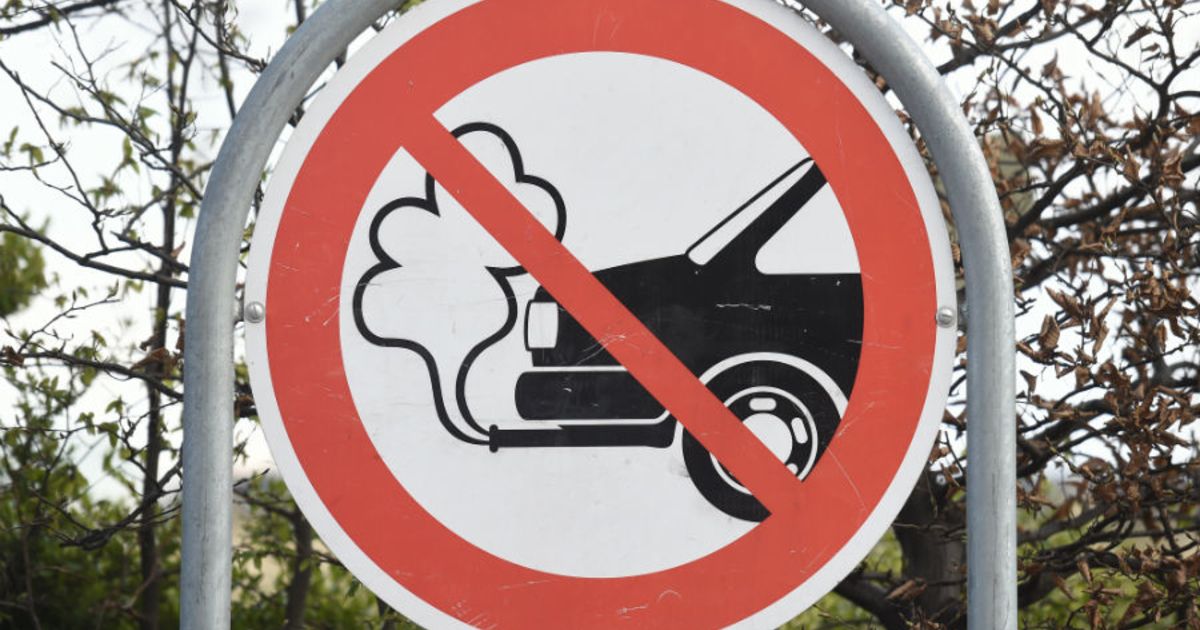
PARIS — The auto industry’s main lobbying group, ACEA, said it was “concerned” that the European Parliament had rejected efforts to weaken a 100 percent reduction in CO2 emissions from new cars from 2035, essentially outlawing sales of internal-combustion engines in the bloc after that date.
“Given that the transformation of the sector is dependent on many external factors which are not fully in its hands, ACEA is concerned that MEPs voted to set in stone a minus 100 percent CO2 target for 2035,” the group said in a statement on Thursday, following Wednesday night’s vote by the parliament.
ACEA expressed general support for the target, however, and called for a halfway progress report to determine post-2030 targets
“Such a review will first of all have to evaluate whether the deployment of charging infrastructure and the availability of raw materials for battery production will be able to match the continued steep ramp-up of battery-electric,” Oliver Zipse, ACEA president and CEO of BMW, said in a statement.
Environmental groups welcomed the vote. “The deadline means the last fossil fuel cars will be sold by 2035, giving us a fighting chance of averting runaway climate change,” said Alex Keynes, clean vehicles manager at Transport & Environment. “And it gives the certainty the car industry needs to ramp up production of electric vehicles, which will drive down prices for drivers.”
The plan to eliminate CO2 emissions from vehicles is part of the European Commission’s “Fit for 55” package, which aims to cut emissions 55 percent in 2030 from 1990 levels. The ultimate goal is carbon neutrality by 2050.
The measure now goes to the European Council, made up of ministers from the 27 EU countries.
A note from analyst company Bernstein said the ministers are “largely expected to agree to the 2035 target of zero emissions for new cars.”
Conservative and right-leaning lawmakers had sought to tone down the ban, highlighting concerns over potential job losses in the industry.
Industry groups including the influential German auto association VDA had also lobbied lawmakers to reject the 2035 target, saying it penalized alternative low-carbon fuels and came too early given a lack of charging infrastructure.
The suppliers lobbying group CLEPA said in a statement that the 2035 target “discards technology options and puts jobs at risk.”
German automaker and car owners lobby groups on Thursday criticized the decision.
VDA President Hildegard Mueller said large parts of Europe did not have the necessary charging infrastructure in place. She also said the ban would increases new-car prices.
“It is too early for such a target,” Mueller said.
Mueller criticized policymakers for demanding that automakers accelerate their switch to electric cars without themselves creating the framework conditions that would enable a faster shift.
Reinhard Zirpel, head of Germany’s VDIK association for importers, said: “The transformation to alternative drivetrains will fundamentally change everyday mobility in Europe and also make it more expensive for many people.”
He also urged the EU to create the appropriate conditions for electrification, such as purchase incentives and the necessary charging infrastructure.
The Automobil-Club Verkehr called it “a narrow-minded commitment to battery-electric mobility.”
The ADAC said it will not be possible to achieve the ambitious climate protection targets in transport with electromobility alone.
However, some automakers, including Ford and Volvo, have publicly supported the plan to stop sales of new combustion engine cars in Europe by 2035, while others, including Volkswagen, aim to stop selling combustion engine cars in Europe by that date.
“The members of the European Parliament have taken a decisive step in the right direction,” Volvo CEO Jim Rowan told Automotive New Europe in a statement. ”Given the climate crisis we all face, this demonstration of global leadership will help ensure the EU delivers on the goals of the Paris Agreement, which require 100 percent zero tailpipe emission vehicle sales in Europe by 2035.”
Volvo aims to only sell full-electric vehicles by 2030 and achieve full climate neutrality by 2040.
The ball is now in the auto industry’s court, Bernstein said in the note to investors. A 2035 ban on internal-combustion sales accelerates the timeline for EV adoption by “five to 10 years,” with a corresponding ramp-up in battery production capacity.
By 2035, the industry will need 1,600 gigawatt-hours of battery capacity to supply Europe, a 10-fold increase from 2022 – and up significantly from Bernstein’s previous estimate of 1,200 GWh.
Those automakers that have already accelerated their timeline for electrification will have an advantage, Bernstein said, as will premium brands, which can better absorb increased prices for EVs.
“We would expect OEMs that have exhibited a more-cautious stance on EV adoption to reivisit their plans and consider an acceleration of their electrification strategies,” the note said.
Automobilwoche contributed to this report